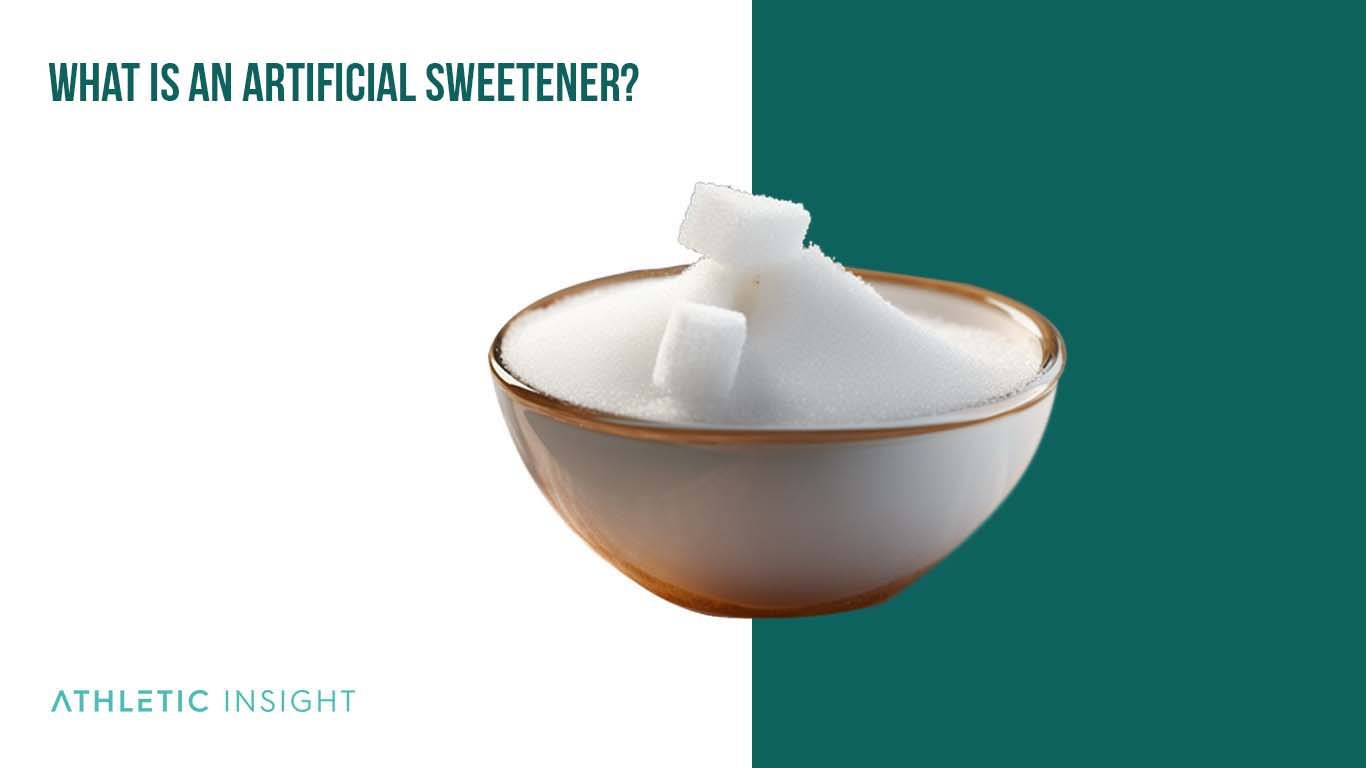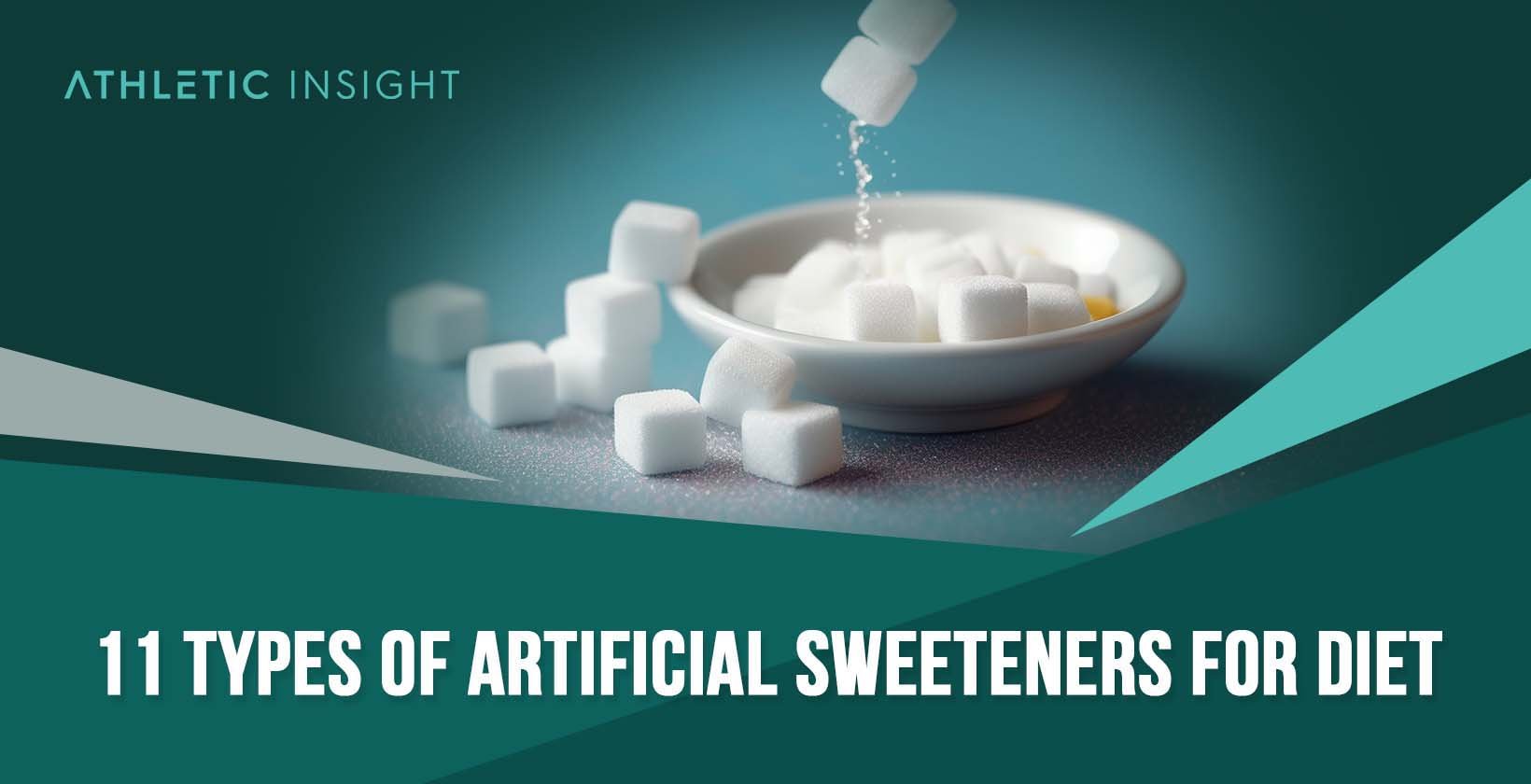Artificial sweeteners have become popular alternatives to sugar for people seeking healthier dietary options. This article explores 11 types of artificial sweeteners that can be used for diabetes management, weight loss, and other dietary purposes.
1. Sucralose
Sucralose is a non-nutritive sweetener derived from sugar. It is approximately 600 times sweeter than sugar and is commonly found in a variety of food and drink products. Its primary uses include diabetes management and weight control, as it has minimal impact on blood sugar levels. Sucralose is generally considered safe, but some individuals may experience side effects such as bloating, gas, or allergic reactions. Exercise caution when using sucralose and consult a healthcare professional if side effects occur.
2. Aspartame
Aspartame is a low-calorie artificial sweetener synthesized from two amino acids, aspartic acid and phenylalanine. It is approximately 200 times sweeter than sugar. Aspartame is used in various food and beverage products for diabetes and weight management. While aspartame is FDA-approved, people with phenylketonuria (PKU) should avoid it due to their inability to metabolize phenylalanine. Some individuals may experience headaches or other mild side effects, but these are generally rare.
3. Stevia
Stevia is a natural, zero-calorie sweetener derived from the leaves of the Stevia rebaudiana plant. It is commonly used in diabetes and weight management due to its negligible effect on blood sugar levels. Stevia is generally safe, but excessive consumption may lead to gastrointestinal discomfort or a mild laxative effect. Be sure to follow recommended serving sizes to avoid potential side effects.

4. Xylitol
Xylitol is a sugar alcohol derived from plant sources, such as birch wood or corn. It is roughly as sweet as sugar but has 40% fewer calories. Xylitol is used in diabetes management and weight loss due to its lower glycemic index compared to sugar. While generally safe for human consumption, it can be toxic to dogs. Excessive intake may cause gastrointestinal issues, so moderation is advised.
5. Saccharin
Saccharin is a synthetic, zero-calorie sweetener that is approximately 200 to 700 times sweeter than sugar. It has been used for decades in various food and drink products for diabetes and weight management. Despite initial concerns about its safety, saccharin has been deemed safe for consumption by the FDA. However, some individuals may experience mild side effects, such as headaches or allergic reactions.
6. Monk Fruit Extract
Monk fruit extract is a natural, zero-calorie sweetener derived from the fruit of the Siraitia grosvenorii plant. It is approximately 150 to 200 times sweeter than sugar and is used for diabetes and weight management. Monk fruit extract is generally well-tolerated, but some individuals may experience mild gastrointestinal side effects with excessive consumption.
7. Steviol Glycosides
Steviol glycosides are a group of compounds extracted from the stevia plant and are responsible for its sweetness. They are used for diabetes and weight management due to their negligible impact on blood sugar levels. Steviol glycosides are generally safe for consumption, but excessive intake may lead to gastrointestinal discomfort or a mild laxative effect.
8. Cyclamate
Cyclamate is a synthetic, calorie-free sweetener that is roughly 30 to 50 times sweeter than sugar. It was widely used in the United States for diabetes and weight management until it was banned by the FDA in 1969 due to concerns about its potential carcinogenic effects. However, cyclamate is still approved for use in many countries, including the European Union. As with any artificial sweetener, it is essential to consider potential risks and consult a healthcare professional before using cyclamate.
9. Neotame
Neotame is a non-caloric artificial sweetener derived from aspartame and is approximately 7,000 to 13,000 times sweeter than sugar. It is used for diabetes management and weight control due to its negligible impact on blood sugar levels. Neotame is approved by the FDA, and no significant side effects have been reported. However, as with any sweetener, it is essential to consume neotame in moderation.
10. Advantame
Advantame is a high-intensity, non-nutritive sweetener derived from aspartame and vanillin. It is approximately 20,000 times sweeter than sugar and is used in various food and beverage products for diabetes and weight management. The FDA has approved advantame as a safe sweetener, but as with any artificial sweetener, it is essential to consume it in moderation to avoid potential side effects.
11. Acesulfame Potassium (Ace-K)
Acesulfame potassium, also known as Ace-K, is a calorie-free artificial sweetener that is approximately 200 times sweeter than sugar. It is often used in combination with other sweeteners to enhance flavor and is employed in diabetes and weight management. Ace-K is FDA-approved, and no significant side effects have been reported. However, it is essential to consume it in moderation.
What is an Artificial Sweetener?
An artificial sweetener is a synthetic or naturally-derived substance used as a sugar substitute to provide sweetness without the calories typically associated with sugar. These artificial sweeteners are used in various food and beverage products and can help individuals manage diabetes, lose weight, and maintain a healthy diet.

What is the purpose of Artificial Sweetener?
The primary purpose of artificial sweeteners is to provide a sweet taste without the added calories, carbohydrates, and potential health risks associated with sugar consumption. They are particularly helpful for people with diabetes, those trying to lose weight, or those looking to reduce their sugar intake for other health reasons.
How can Artificial Sweetener be included in Weight Loss Plan?
Artificial sweeteners can be incorporated into a weight loss plan by replacing sugar in various food and drink products, such as beverages, baked goods, and desserts. By substituting sugar with a low or zero-calorie sweetener, individuals can reduce their overall calorie intake, which may aid in weight loss.

What Artificial Sweetener is best for Diabetic Diet?
Stevia and monk fruit extract are often recommended for individuals with diabetes due to their negligible impact on blood sugar levels. However, it is essential to consult a healthcare professional before incorporating any artificial sweeteners into a diabetic diet, as individual responses to these sweeteners may vary.
How does Ketogenic Diet use Artificial Sweeteners?
In a ketogenic diet, artificial sweeteners can be utilized as sugar substitutes to maintain the low carbohydrate intake necessary for ketosis. Stevia, erythritol, and monk fruit extract are popular choices due to their low glycemic index and minimal impact on blood sugar levels. Incorporating these sweeteners allows individuals following a ketogenic diet to enjoy sweet-tasting foods and beverages while adhering to their dietary restrictions.
How can Artificial Sweetener be used in a Vegan Diet?
Artificial sweeteners can be used in a vegan diet to replace sugar in various food and beverage products, such as plant-based desserts, smoothies, and baked goods. Not all artificial sweeteners are derived from animal sources or involve animal-derived processing agents. Stevia, xylitol, erythritol, and monk fruit extract are examples of vegan-friendly sweeteners. Always check the labels and research specific brands to ensure they align with vegan principles.
How effective are Artificial Sweeteners in Weight Loss?
Artificial sweeteners can be effective in weight loss when used as part of a balanced, calorie-controlled diet. By replacing sugar with low or zero-calorie sweeteners, individuals can reduce their overall calorie intake, which may contribute to weight loss. However, it is essential to remember that artificial sweeteners should not be the sole focus of a weight loss plan, and maintaining a healthy diet and engaging in regular physical activity are crucial components for success.
Are some Artificial Sweeteners better for weight loss?
Some artificial sweeteners may be more suitable for weight loss than others, depending on factors such as their calorie content and glycemic index. Natural sweeteners like stevia and monk fruit extract, which have zero calories and minimal impact on blood sugar levels, are often recommended for weight loss. However, individual preferences and responses to sweeteners may vary, so it is essential to find the option that works best for you.
Can too much Artificial Sweetener be harmful?
Yes, excessive consumption of artificial sweeteners may lead to adverse effects, such as gastrointestinal issues, headaches, or allergic reactions. It is essential to consume artificial sweeteners in moderation and follow the recommended serving sizes to minimize potential risks.
Are Artificial Sweeteners FDA Approved?
Yes, many artificial sweeteners, such as aspartame, sucralose, stevia, and acesulfame potassium, have been approved by the FDA for consumption. However, it is crucial to note that some sweeteners, like cyclamate, are not approved in the United States but are permitted in other countries.
What is the difference between Artificial Sweeteners and Natural Sweeteners?
Artificial sweeteners are synthetic or naturally-derived substances used as sugar substitutes, while natural sweeteners are sweet-tasting compounds obtained directly from plant or animal sources. Examples of natural sweeteners include honey, maple syrup, and agave nectar. Both artificial and natural sweeteners can provide sweetness without the calories and health risks associated with sugar consumption. However, natural sweeteners may still contain calories and carbohydrates, so it is essential to consider these factors when incorporating them into your diet.



